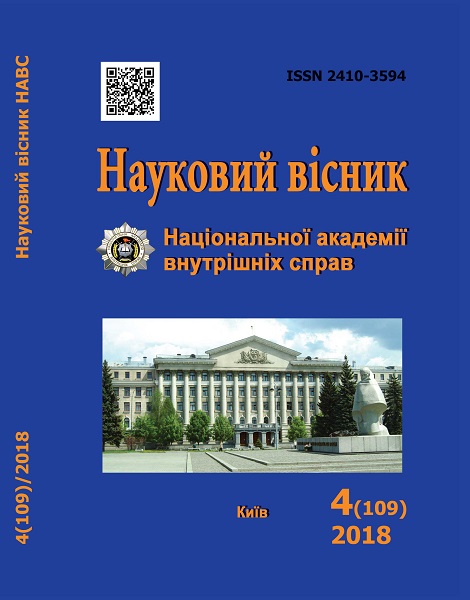Innovations of Legal Education: Conceptualization, Challenges, Perspectives
Abstract
According to sociological services, it has been established that educational reform is among the main priorities and the most important modifications that are necessary for Ukrainian society. The component of educational reform is the reform of legal education. It is substantiated that in order to create an effective model of legal education, it is necessary to take into account the innovative processes taking place in the world. Through the prism of legal education, innovation is analyzed as a system of transformation, as a process, and finally as a result that determines the effectiveness of legal education. Were provided examples to determine trends in society that are actualized by innovation processes and lead to changes in the economy, where the latter cause a chain reaction and lead to changes in occupations. Has been analyzed the influence of Industry 4.0 on the profession of lawyer and has been confirmed the pattern in all areas where routine actions are needed, artificial intelligence replaces lawyers and it is an irreversible process. It has been established that the development of the economy, changes in professional activity lead to the creation of gaps between science and practice on the one hand and education on the other. The classical model education of lawyers gives a breakdown through a set of reasons, the main among which are: tendencies of acceleration of the evolutionary process of society, and its results, by complexity and opportunity, change exponentially; the need for new and constantly updated skills; lack of time for the preparation of a specialist; significant financial expenses for the training of a specialist. The tendencies of institutional and meaningful changes in legal education were revealed. Active and interactive teaching methods, which collectively create innovative lawyer training techniques, were identified. The idea of creation an «interactive platform of educational program of lawyer with open architecture» as a concept of cycle for a professional lawyerʼs establishment and an effective learning technology algorithm was suggested.
Downloads
Abstract views: 104 PDF Downloads: 204
- Authors reserve the right to authorship of their own work and transfer to the magazine the right of the first publication of this work under the terms of the Creative Commons Attribution License, which allows other persons to freely distribute published work with mandatory reference to authors of the original work and the first publication of an article in this magazine.
- Authors have the right to enter into separate additional agreements on non-exclusive dissemination of the work in the form in which it was published in the journal (for example, to post an article in the institution's repository or to publish as part of a monograph), provided that the link to the first publication of the work in this journal is maintained.
- The journal's policy allows and encourages the posting of articles by authors on the Internet (for example, in electronic storehouses of institutions or on personal websites), both before the submission of this manuscript to the editorial office and during its editorial processing, as this contributes to the creation of a productive scientific discussion and positively affects the efficiency and dynamics of citing the published work.




